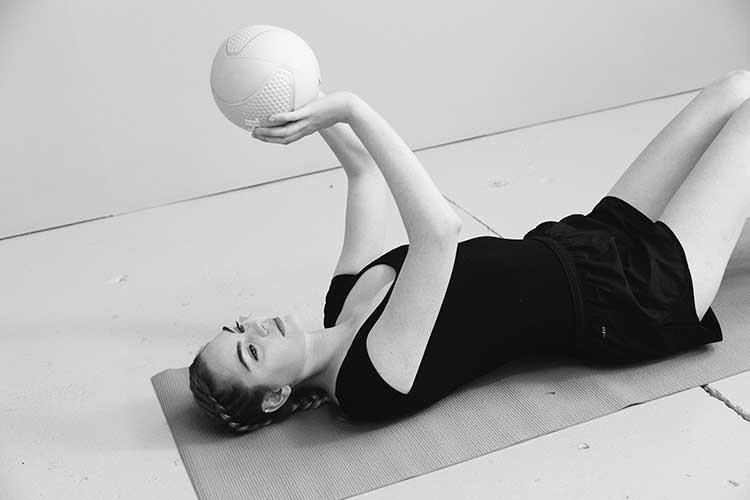
Do you know that every exercise you do could be causing irreversible damage to your pelvic floor?
In an age where women are encouraged to be proud and educated around their bodies and their health, many topics that were once spoken in hushed tones are now widely explored. However, pelvic floor dysfunction and it’s sinister sister incontinence are still two issues that are too often banished to the don’t-go-there basket.
With the rise in popularity of extreme exercise like boot camps, and an insufficient understanding of pelvic floor safety among the fitness profession, that basket is a dangerous place to be.
A brave new campaign has launched challenging women everywhere to become better informed. Every human has a pelvic floor and it is a muscle that’s got a massive workload, keeping our pelvic organs in place every day. For women, it’s a muscle that can be compromised during pregnancy and childbirth – but, according to experts, these are not the only times we need to pay attention. “Pelvic floor dysfunction is not biased as to whom it may affect. Both genders are at risk,” explains Vicki Zumbraegel, a Registered Nurse and REPS personal trainer. “Most ages and stages of life should look at education and even re-education.”
The facts are alarming: one in four women will experience some kind of pelvic floor dysfunction in their lifetime and many forms of exercise can actually increase risk. “Any kind of high impact exercise can affect the pelvic floor by increasing abdominal pressure which pushes down on to the pelvic floor organs and muscles and may cause a weakness of some kind like a prolapse or continence issue. [This includes] running downhill, aerobics, boot camps, skipping and any exercise that uses heavy weights.”

Thankfully, there is such a thing as safe pelvic floor exercises and Continence New Zealand will launch half-day workshops starting in September to educate fitness professionals so they can learn how to train their clients safely. “Your core needs to be as strong as the exercise you wish to undertake – the pelvic floor is a muscle that needs to be strengthened just like any other muscle,” says Linda Lovett, also a REPS trainer and nurse.
Lesley Ranford, a young healthy mum who suffered pelvic floor dysfunction, says the message can’t be shared loudly enough. After experiencing a Stage 2 bladder prolapse and a hypertensive pelvic floor following months of unsafe exercise, Lesley’s physio told her “point blank” that she’d never be able to work out again, the way she had before having a baby. She was devastated – not only to learn she had a serious and untreatable condition, but also to be told that her beloved workouts would have to stop – forever.
Thankfully she sought a second opinion, this time from a physio specialising in pelvic floor matters. “I can’t believe it,” says Lesley. “After a few minutes with her I learnt that there were so many things I’d been doing incorrectly – different kinds of exercises especially that I shouldn’t have been. I was making things worse. Nobody talks about this stuff… my midwife didn’t talk about it, nor my GP, nor my gym trainer, nor the first physio I saw.”
Continence New Zealand’s campaign launched in June and includes a comprehensive collection of information and interviews at the website pelvicfloor.nz which they hope women everywhere, of all ages, will visit to become better informed.
Anyone with specific questions or concerns can phone the information line 0800 650659 or by completing a form on the Pelvic Floor Focus website.










